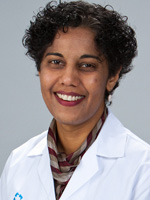 As we enter the New Year, let us examine our lifestyles and see if we can do anything to promote better health. We all know that we cannot change genetics. However the good news is that genetics accounts for only approximately 5% or less of all cancers. That is staggering because this means there is something in the environment or perhaps one’s lifestyle that triggers cancer growth in an individual. While we don’t understand the exact cause of cancer in every person, we often can link certain risk factors to some cancers.A well known association is risk of lung cancer in smokers. I always like to remind people that it is never too late to quit smoking. We know that smoking is associated not just with lung cancer but also cancers of the mouth, throat, esophagus, stomach, pancreas, kidney, bladder and cervix. In addition, smokers are six times more like than non smokers to suffer a heart attack. Also, smokers develop chronic lung disease which can result in needing to carry an oxygen tank to help with breathing. It is also a very expensive addiction, not just in cigarette or nicotine cost but added cost for health care.
As we enter the New Year, let us examine our lifestyles and see if we can do anything to promote better health. We all know that we cannot change genetics. However the good news is that genetics accounts for only approximately 5% or less of all cancers. That is staggering because this means there is something in the environment or perhaps one’s lifestyle that triggers cancer growth in an individual. While we don’t understand the exact cause of cancer in every person, we often can link certain risk factors to some cancers.A well known association is risk of lung cancer in smokers. I always like to remind people that it is never too late to quit smoking. We know that smoking is associated not just with lung cancer but also cancers of the mouth, throat, esophagus, stomach, pancreas, kidney, bladder and cervix. In addition, smokers are six times more like than non smokers to suffer a heart attack. Also, smokers develop chronic lung disease which can result in needing to carry an oxygen tank to help with breathing. It is also a very expensive addiction, not just in cigarette or nicotine cost but added cost for health care.
So why not quit now, while you are thinking about all these ill effects? This will be the best New Years gift to yourself and you will be proud of yourself. If you need help with quitting, please talk to your doctor about many available aids out there. Also, the Georgia Quit line (1-877-270-STOP) is a toll free telephone based program available throughout Georgia and offers personalized counseling for quitting tobacco. They also offer free nicotine patches and gum to all Georgia adults regardless of health insurance, status or coverage.Besides smoking, did you know that obesity, poor nutrition and physical inactivity can also significantly increase risk of cancer and accounts for 25-35% of all newly diagnosed cancers? Obesity has been shown to increase risk of cancers of breast, colon, rectum, uterus, esophagus, pancreas and kidneys. It also increases risk of diabetes, stroke and heart disease. Recent studies have shown that weight loss can lower risk of certain cancers such as breast cancer in women after menopause.
An easy way to work on losing weight is to pay attention to food labels on every food item. You can easily find foods with lower calories per serving and less than 2-5 grams of fat per serving. Another easy way to lower calories is by eating smaller portions, limiting snacks and high calorie drinks, limiting red meat and processed meat, and choosing whole grains instead of refined grains. Also, don’t forget to limit alcohol intake to no more than a drink per day.A very important part of your daily diet should be fruits and vegetables. Are you getting 3-5 serving of fruits and vegetables each day? These are a rich source of fiber, antioxidants, and other chemicals that can lower risk of cancers.Lastly, don’t forget physical activity. Most of us may not be runners or motivated to get on a treadmill. However, are you at least walking daily as a form of exercise? The American Cancer Society recommends at least 150 minutes of moderate intensity activity such as walking or 75 minutes of vigorous activity such as jogging or running each week. Most of us can easily fit this in our schedule. Let us make a conscious effort to start a regular exercise program this year.
Remember that you can reap great health benefits by simply being proactive. Start today by throwing away your last cigarette, reading nutrition labels on each food item you consume, eating 3-5 servings of fruits and vegetables every day and by carving out a time slot in your schedule daily for exercise. You can do it and it is never too late to start on a routine!
Dr. Priya Rudolph, a graduate from Yale University is an experienced hematologist/oncologist with Georgia Cancer Specialists affiliated with Northside Hospital Cancer Institute (www.gacancer.comhttps://www.gacancer.com). She has offices in Athens (ph 706-369-4478) and at the Cowles Clinic in Greensboro (Ph 706 454-0159). Georgia Cancer Specialists is a top 10 privately owned practice and is a national leader in advanced cancer treatment and research. Its physicians and staff offer many clinical trials and state of the art personalized care to each individual patient.